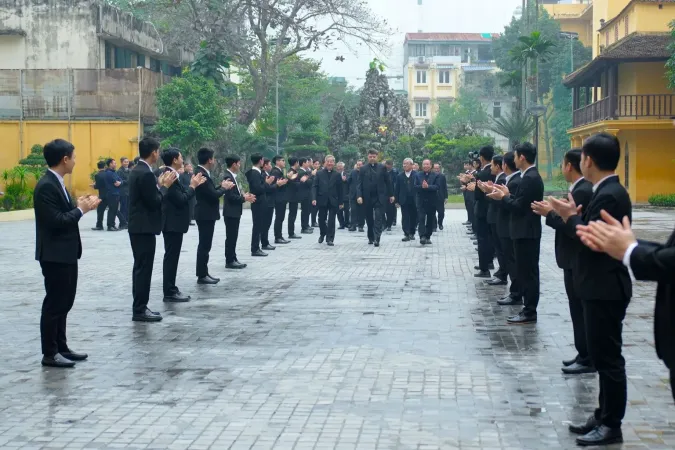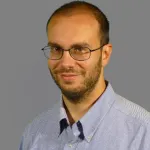
The change in perspective is all in a three-letter adverb of negation that disappears and opens up a completely new world: Archbishop Marek Zalewski until December 23 was nuncio in Singapore and non-resident representative of the Holy See in Vietnam. Then, thanks to the agreements reached between the Holy See and Hanoi last July, he became a "resident representative," and on January 31, he arrived in Hanoi. The Holy See finally has an address in Vietnam. And it can prepare to welcome Pope Francis.
Yes, because many hope that the Pope will make the first, historic visit of a pontiff to Vietnam, responding positively to the written invitation sent to him by the Country's Governmental Committee for Religious Affairs, which asked Francis to experience "the socio-economic developments and religious life" of the Southeast Asian country. And the possibility of a trip exists, considering that the Pope should go to Indonesia, Papua New Guinea, and East Timor in August – health permitting – and could easily add a one or two-day stop in Hanoi.
These are, in short, days of great joy and excitement for the Church in Vietnam, justifying the enthusiasm in welcoming nuncio Zalewski. Arriving on a flight from Singapore, landing in Hanoi at 3:25 p.m. on January 31, the new resident representative of the Holy See was greeted by Joseph Nguyen Nang, president of the Vietnamese Episcopal Conference; by Vice President Vu Van Thien, by office head Dao Nguyen Vu, and by the secretary of the Church of Hanoi Ta Minh Quy.
Archbishop Nguyen Nang expressed joy in welcoming the representative of the Holy See to his new role, while Zalewski thanked the bishops of the province of Hanoi, the priests, the nuns, and all present for his welcome. "I am here to serve the Church in Vietnam."
Currently, the Holy See's address in Hanoi is a hotel, the Pan Pacific Hotel, about two kilometers from the archbishopric. But an official office for the pontifical representative must be defined.
However, many have asked the communist government through social media to return an old Church building that was used by apostolic delegates who resided in the country from 1951 to 1959, in a gesture that should concretely show the will to have good relations with the Catholic Church. This was revealed to UCA News by Father James Dinh Xuan Toan, a Redemptorist residing in Hue.
The building is right next to the Archbishop's House in Hanoi. Confiscated by the government, it has been used as a public library since 2008, but before it was used as a restaurant, disco, and bar. According to Father Toan, however, the return of the building could create a difficult precedent for the government to manage, as then the return of various Church properties could be requested.
Starting in 1954, in fact, the communist government officially "borrowed" countless facilities managed by religious groups in the North, and did the same with those in the South starting in 1975. Many of those properties are still used as public buildings, while others have already been sold to private individuals, so granting a plot of land by the government would allow maintaining good relations with the Catholic Church while at the same time circumventing a movement that demands the return of Church buildings.
The first apostolic delegate to Indochina, which also included Vietnam, was appointed in 1925: it was Bishop Constantino Ayuti, who resided in Hue. The transfer to Hanoi of the pontifical delegation took place in 1950, by decision of Bishop John Dooley. The residence was used until 1959, when the delegate was expelled from Vietnam.
The apostolic delegates then settled in another Church building in Saigon, the current Ho Chi Minh, where they resided from 1959 to 1975, when the nation was then reunified under communist control.
Between 1925 and 1975, the Holy See appointed nine apostolic delegates in Vietnam. The last apostolic delegate was Archbishop Henri Lemaitre. He was expelled from South Vietnam in 1975, and since then there have been no formal diplomatic relations between the Holy See and Vietnam.
In the mid-1990s of the last century, contacts were restored, and in the first decade of the 2000s, an intense bilateral exchange began, leading to ten working tables between Vietnam and the Holy See. The dialogue led first to the appointment of a non-resident representative and then, last July, to the definition of a resident representative. The nunciature's headquarters remains in Singapore for now.
This article was originally published on ACI Stampa.

Andrea Gagliarducci is an Italian journalist for Catholic News Agency and Vatican analyst for ACI Stampa. He is a contributor to the National Catholic Register.








